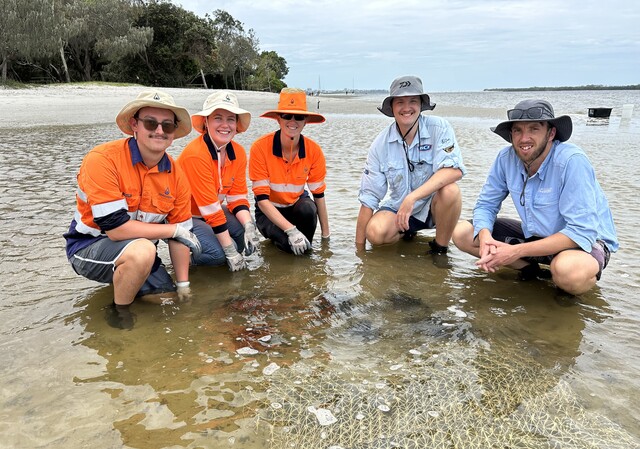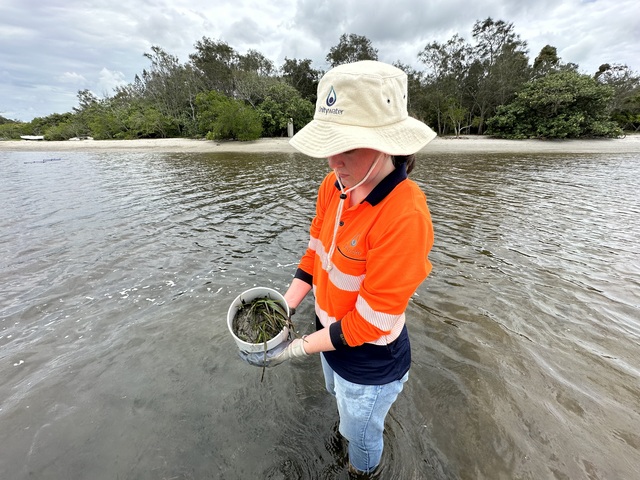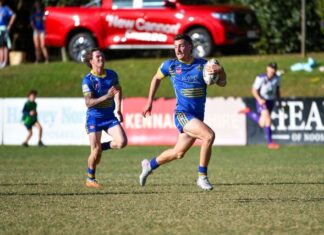Unitywater, which provides water and wastewater services to Noosa, Sunshine Coast and Moreton Bay, has joined with University of Sunshine Coast to plant seagrass across seven sites in Moreton Bay’s Marine Park to determine its effectiveness in reducing nutrient levels that enter the local waterways.
The project will aim to find suitable solutions to restoring the threatened plant habitat to provide essential food, shelter and nursery for green turtles, fish, and other local fauna, whilst measuring the plants’ ability to absorb and process nutrients.
Unitywater Executive Manager Sustainable Infrastructure Solutions, Mike Basterfield, said the project was expected to enhance waterways across the planting locations, which would contribute to the organisation’s sustainability goal of net zero nutrients to waterways by 2040.
“As we have infrastructure in, underneath and near marine environments, we have a responsibility to maintain natural habitats and a commitment to enhancing the waterways in our region,” Mr Basterfield said.
“The trial will measure seagrass’ ability to absorb and process nutrients like nitrogen and phosphorus in varying marine sites across Moreton Bay, and one in Bells Creek on the Sunshine Coast.”
“The trial follows the success of other nature-based initiatives we’ve implemented, including our Caboolture River Nutrient Offset Project, which has diverted almost 1900 kilograms of nutrients from waterways to date.”
The project was born from an idea presented by a Unitywater Project Engineer in 2023 as part of an annual ‘Innovation Challenge’, which asked employees to submit a solution or idea to positively contribute to waterways across Unitywater’s service region.
Since its conception, the project has been designed and undertaken by the water utility’s ‘Graduate Development Program’ cohort, who deliver a ‘Team Innovation Project’ during their time in the two-year program.
The initiative is supported by University of the Sunshine Coast, where the research expertise of Dr Christopher Henderson will contribute to the project’s success and provide a foundation for future scientific studies at the University.
“Seagrasses in Moreton Bay are under threat from a range of disturbances, so identifying approaches that can be effective in restoring the habitat in the region is important for fish habitat and nutrient reduction,” Dr Henderson said.
The seagrass meadows will be installed at Beachmere, Bells Creek, Toorbul, Scarborough, Caboolture River, Coochin Creek and southern Bribie Island, with all planting due for completion in the first half of 2025.










